#state ballet of georgia
Text
Balanchine's Serenade...
Last weekend I got to see the State Ballet of Georgia perform two ballets by Balanchine: Serenade and Concerto Barocco during their US Tour. They were in New Orleans.
WOW!
This company, though small, is very impressive and the the performances were extremely vivid. I had never seen Serenade live and it's really beautiful. There's so much detail in there that I missed, I would love to see it again.

#ballet#balanchine#state ballet of georgia#Nina Ananiashvili#Serenade#Concerto Barocco#the country not state#Georgia
6 notes
·
View notes
Text
Very interesting. Xander Parish announced to perform with the State Ballet of Georgia for their upcoming Romeo and Juliet performances. He'll dance with Laura Fernadez Gromova.
9 notes
·
View notes
Text
get to know me tag 💕
tagged by @sp00kymulderr @sheepdogchick3 @mermaidgirl30 thanks y’all 🫶🏻
1. Were you named after anyone?
yes, after two of my great grandmothers. and my name is just Kate, it's not short for anything.
2. When was the last time you cried?
definitely in the last week. a few days ago? I had therapy on Monday, that might be when. lol
3. Do you have kids?
no. we're on the fence. I have approximately one million nieces and nephews and niblings, though.
4. What sports do you play/have played?
I danced growing up — I was in a company, we did ballet, jazz, tap, lyrical/contemporary, hip hop, etc. that was mostly what I did with my time (5 days/week). I took classes in college and grad school and I've looked for tap classes everywhere I've lived since. I still take tap classes now (it was always my favorite).
5. Do you use sarcasm?
does anyone... not?
6. What’s the first thing you notice about people?
faces, I guess? I'm pretty good at remembering names if I'm paying attention, so I'm matching a face to a name.
7. What’s your eye color?
brown
8. Scary movies or happy endings?
I can't do scary movies like, at all. but there are like three specific things that will keep me from watching a movie (like, when people crawl like crabs), and if it's scary or a thriller and it doesn't have those things I can probably manage it. I am a sucker for happy endings. all of my fic have happy endings. like, I'll read other stuff, but it's just who I am. if I ever write solid angst we should all be impressed I managed it. 🤷🏻♀️
9. Any talents?
dance, since I had so many years of lessons. I'm pretty good with languages.
10. Where were you born?
Georgia (the US state, not the country)
11. What are your hobbies?
knitting, sewing. I just realized I can add writing to this list, which is kind of exciting? also watching hockey. video games.
12. Do you have any pets?
one cat, Olly (short for Oliver)
13. How tall are you?
5'6"
14. Favorite subject in school?
languages (Spanish, Russian), history, and in college, linguistics
15. Dream job?
sometime y'all should get me to monologue about the years I spent disentangling the idea of work from the idea of a calling (thanks, grad school). but I don't have a dream job. I know generally what I like to do. 🤷🏻♀️
I feel like I've tagged a billion people this week so please just tell me if you don't want to be tagged in these things lol
no pressure tags: @katareyoudrilling @davnittbraes @djarins-cyare @beardedjoel
13 notes
·
View notes
Text
New for me in '23. The year in review.
I guess first and foremost my biggest accomplishment in 2033 was that I survived it. Anything beyond that is a bonus.
Fortunately, there were a lot of bonuses and a lot of things I did for the first time.
Things that were bonuses:
My television show was featured in promotions on the VeryLocal network for National Women's Month in March and for Pride Month in June. It was also shown locally on Channel 2 for the first time!
I appeared on another show for Spetrum News. For Pride Month I was featured in a segment called "Everyday Heros".


Things that were new:
There were lots of these this year! Some I planned on, others just just kind of....happened.
I joined the "Century Club" for two different activities. I did 102 miles on the hiking trails in 4 different states including Florida, Georgia, South Carolina and New York.
I did 132 hours of volunteer work for 6 different organizations. Osceola Arts, The Center Orlando, Equality Florida, Come Out With Pride, Out and Equal and Disney VoluntEARs. This raised over $1,300 in donations!
I did my first glamping trip!

I met my favorite author, Melissa Brayden and my second favorite, Georgia Beers at Read Out 2023

I got politically active for the first time as Governor DeFascist and his right wing gestopo targeted LGBTQIA + people, and especially the transgender community, with utterly despicable legislation.
Expanded and added new ways to enjoy the arts. This included my first Opera, Ballet and LGBTQ themed stage play.
Discovered that, even though I love hiking, overnight camping doesn't work with my physical limitations (right now)
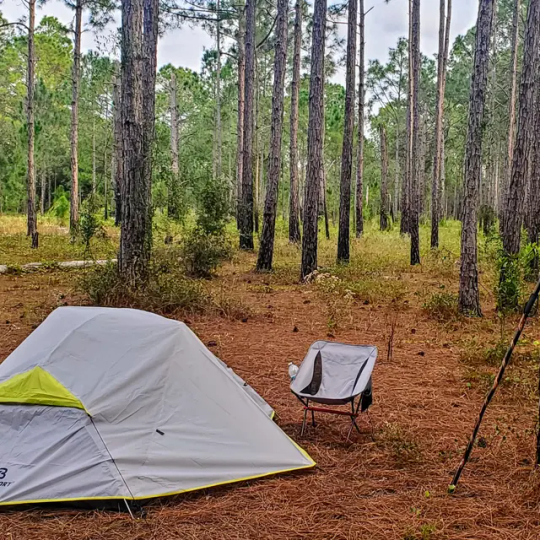
Visited Watkins Glen State Park (which I loved) and Niagara Falls (which was ok) in Western New York.
Was included in the "100 years of Disney Castmembers " featuring a photo (with my.....< sigh> friend) and a short quote.


Had a great time marching in my first Pride Parade through downtown Orlando. The energy was incredible and so much more fun then I imagined.

But, by far, my favorite thing I did this year was be part of the cast of "Affirming Love ". It was my first ever stage performance as an actress and the feeling of performing in that capacity was thrilling, nerve-wracking and completely addictive! I swear the part was written with me in mind. It was a perfect fit. Especially for my first time.
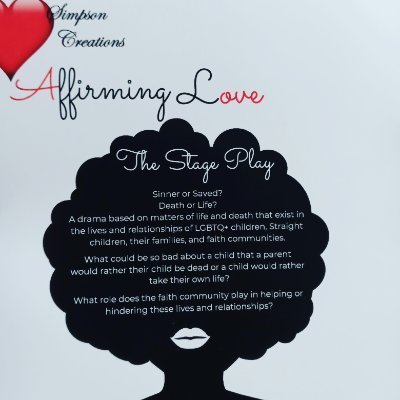

The Challenges:
There is never a year without it share of challenging times and obstacles. These included the still unresolved issue of my kidney ureter problem, The take over of my house by my "guest", my crippling loneliness, worry about what others will do next in thier war on the LGBTQ community, too many hours working to afford my house, my physical limitations (including arthritis) and more.
In retrospect the year was a successful one. So many new experiences, so many firsts and so many memories.
Plus I'm still here to see what 2024 might bring.
What might those be.....well, I have a few ideas.
~Madison
8 notes
·
View notes
Text
It appears Alina Somova is no longer at the Mariinsky. She has been removed from the website.
She also now has a Georgian last name on Instagram, Avsadzhanashvili, and has been dancing with the State Ballet of Georgia for several months.
10 notes
·
View notes
Text
Exploring Tbilisi: A Guide to Georgia's Stunning Capital City

Tbilisi, the capital city of Georgia, is a hidden gem in the Caucasus region. Nestled between the Black Sea and the Caucasus Mountains, Tbilisi is a city that blends the old and the new, the traditional and the modern. From its ancient history and rich cultural heritage to its vibrant nightlife and trendy cafes, Tbilisi has something for everyone.
The Unique Architecture of Tbilisi
The first thing you'll notice when you arrive in Tbilisi is its unique architecture. The city is a mix of old and new, with towering Soviet-era buildings standing alongside charming cobblestone streets and colorful Georgian houses. One of the most iconic landmarks in Tbilisi is the Narikala Fortress, which offers stunning views over the city.
But Tbilisi's architecture goes beyond its landmarks. The city is filled with beautiful buildings and streets that are worth exploring. For example, the Old Town is a must-see for anyone interested in Tbilisi's history. Here, you'll find narrow streets, cobblestone alleys, and colorful buildings that transport you back in time.
Tbilisi's Rich Cultural Heritage
Tbilisi is more than just its architecture. The city is known for its rich cultural heritage, with a variety of museums, galleries, and theaters showcasing Georgian art and history. The Georgian National Museum, for example, is home to an impressive collection of Georgian artifacts, including ancient gold jewelry and medieval manuscripts.
But Tbilisi's cultural heritage goes beyond its museums and galleries. The city is also home to a number of historical and cultural landmarks, such as the Sioni Cathedral and the Metekhi Church, both of which date back to the 13th century. And for a more modern cultural experience, you can visit the Tbilisi Opera and Ballet Theater, which hosts regular performances of classical music and ballet.

The Delicious Cuisine of Tbilisi
Of course, no trip to Tbilisi would be complete without trying some of the local cuisine. Georgian food is hearty and delicious, with dishes like khinkali (meat dumplings), khachapuri (cheese-filled bread), and chakapuli (lamb stew) being just a few of the many local specialties. And of course, you can't leave Tbilisi without trying some of the local wine, which is some of the best in the world.
In Tbilisi, you'll find a wide range of restaurants and cafes that serve Georgian cuisine, as well as other international dishes. Whether you're looking for a fine dining experience or a more casual meal, you'll be able to find something that suits your tastes in Tbilisi.
Tbilisi's Vibrant Nightlife
Another thing that makes Tbilisi such a great destination is its vibrant nightlife. The city has a thriving music and arts scene, with clubs, bars, and cafes catering to all tastes. Whether you're looking for a traditional Georgian folk music performance or a more modern clubbing experience, Tbilisi has something for you.
In Tbilisi, you'll find a wide range of venues that cater to different music and arts scenes. For example, you can visit the Tbilisi Philharmonic Orchestra, which hosts regular classical music performances, or the Tbilisi State Theater, which stages a variety of plays and musicals. Or, if you're looking for something more contemporary, you can visit one of the many clubs and bars that dot the city. Tbilisi has a lively nightlife scene, with something to offer for everyone, from live music performances to DJs and dance parties.

Planning Your Trip to Tbilisi
Overall, Tbilisi is a city that has something for everyone. From its rich history and cultural heritage to its vibrant nightlife and delicious cuisine, Tbilisi is a must-visit destination for anyone traveling to Georgia. So why not plan your trip today and discover the hidden gem of the Caucasus for yourself?
When planning your trip to Tbilisi, there are a few things to keep in mind. First, the best time to visit Tbilisi is in the spring or fall, when the weather is mild and pleasant. The summer can be hot and humid, while the winter can be cold and wet.
Secondly, you'll need to plan where to stay in Tbilisi. The city has a range of accommodation options, from budget hostels to luxury hotels. Depending on your budget and preferences, you can choose a hotel or apartment that suits your needs.
Finally, it's a good idea to do some research and plan out your itinerary before you arrive in Tbilisi. This way, you can make the most of your time in the city and see all the sights and attractions that interest you.
In conclusion, Tbilisi is a vibrant and exciting city that has something for everyone. From its rich cultural heritage to its delicious cuisine and lively nightlife, Tbilisi is a must-visit destination for anyone traveling to Georgia. So why not plan your trip today and discover the hidden gem of the Caucasus for yourself?
#Tbilisi#Tbilisi Georgia#Travel in Tbilisi#Travel in Georgia#Georgia#Georgia Country#Tourism#Travellers
10 notes
·
View notes
Text
Kim Basinger Net Worth, Biography, Career, Family & more
Kim Basinger became well-known after having a successful job in New York in the 1970s. She was an actress, model, and singer in the United States. In 1976, she moved to Los Angeles, where she had a great acting career. She acted in a number of TV movies, such as "From Here to Eternity" (1976) and "Hard Country" (1981).
Kim Basinger’s Net Worth
Kim Basinger's net worth is thought to be about $45 million as of December 2021. Her job as an actor and model has brought her tens of millions of dollars. It was thought that she made around $1,000 a day as a model, while her pay for the L.A. Confidential movie was around $3 million. But we don't know how much she makes right now. On the other hand, her net worth has gone up over the past few years and is likely to keep going up in the years to come.
Kim Basinger net worth of $45 million.
Even though she has moved from one job to another, Kim Basinger has had a lot of success in her work. She started out in her job doing something she didn't really like, but she stuck with it.
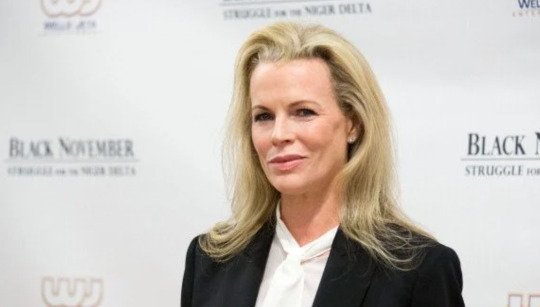
Kim Basinger Biography
Kim Basinger was born in Athens, Georgia, on December 8, 1953. Ann Lee, her mother, was a model, actress, and swimmer who was in a couple of movies with Esther Williams. Her father, Donald Wade Basinger, was a well-known band leader and score head who died in 2016. He was an officer in the US Armed Forces and was in Normandy on D-Day.
She is the third of five children and has two brothers, James Michael "Mick" and Skip, and two sisters, Ashley and Barbara. Basinger has English, German, Swedish, and Ulster-Scottish ancestry. She was raised in a Methodist family. Basinger has shown herself to be quite shy, which had a big effect on her when she was young and in her teens. She said that she was so shy that she would pass out whenever her teacher asked her to talk in class.
Basinger thought about ballet dance from the time she was three until she was in her mid-teens. By the time she was in her mid-teens, she was more confident and was able to try out for the school cheering team. She was 17 years old when she entered America's Junior Miss Scholarship Pageant. She made it to the local level and was named Athens Junior Miss.
Even though Sue Whitted, who was "Georgia's Junior Miss," beat her in the state competition, her achievements were featured in the national show. She had participated at the state level for the Breck Scholarship, and she and her mother were both in an ad for Breck.
Kim Basinger Career
According to Moneymaked.com, Kim Basinger worked for the Ford Modeling Agency, even though she was turned down at first because of her schoolwork. After posing for Ford, she was in a number of magazines, which is where the name "Breck Shampoo Girl" came from. She did say, however, that she didn't like modeling. She used to put on shows in Greenwich Village in New York City.
She went to Los Angeles to start her acting career after she had done well as a model. She started out by making a few guest roles on the TV show. Her first major part, in the drama "Katie: Portrait of a Centerfold," was a centerfold. "Hard Country" was also a well-known movie.
The 1988 movie "Batman," on which Kim Basinger worked, was also a big hit. "Even Money," "The Sentinel," and "Cellular" are some of the more current movies she has been in.
Kim Basinger Family
Basinger married Alec Baldwin in 1993, but they split up in 2002. In 1995, they had a girl together who they named Ireland Baldwin. Between 1980 and 1989, she was married to Ron Snyder for nine years. Ron Snyder-Britton was the person who did her make-up. In 1981, he was in a movie called "Hard Country." They broke up in 1988, but they didn't get a divorce until 1989.
She is also said to have dated and lived with Dale Robinette in the 1970s, but their relationship didn't work out. Kim also went out with the singer-songwriter Prince and had an affair with the human rights activist Richard Gere. Kim's sisters are Ashley and Barbara Basinger, and her brothers are Skip and Mick Basinger.
After she won a few events, people started to notice how beautiful she was. She went to the University of Georgia and also studied for a short time at the Neighborhood Playhouse School of the Theater. Kim's boyfriend right now is a barber named Mitchell Stone.
#Kim Basinger#Kim Basinger Net Worth#Kim#Actress#Model#Heroine#Hollywood#Hollywood Actress#Singer#Director#Biography#Family#Career#Net Worth#Salary
2 notes
·
View notes
Text
Opinion Alexei Navalny: This is what a post-Putin Russia should look like
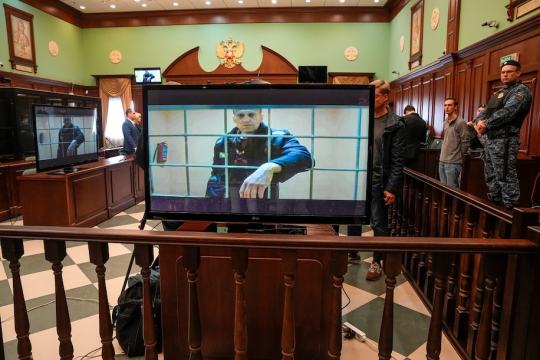
Russian opposition leader Alexei Navalny is serving a nine-year sentence in a maximum-security penal colony. This essay was conveyed to The Post by his legal team.
What does a desirable and realistic end to the criminal war unleashed by Vladimir Putin against Ukraine look like?
If we examine the primary things said by Western leaders on this score, the bottom line remains: Russia (Putin) must not win this war. Ukraine must remain an independent democratic state capable of defending itself.
This is correct, but it is a tactic. The strategy should be to ensure that Russia and its government naturally, without coercion, do not want to start wars and do not find them attractive. This is undoubtedly possible. Right now the urge for aggression is coming from a minority in Russian society.
In my opinion, the problem with the West’s current tactics lies not just in the vagueness of their aim, but in the fact that they ignore the question: What does Russia look like after the tactical goals have been achieved? Even if success is achieved, where is the guarantee that the world will not find itself confronting an even more aggressive regime, tormented by resentment and imperial ideas that have little to do with reality? With a sanctions-stricken but still big economy in a state of permanent military mobilization? And with nuclear weapons that guarantee impunity for all manner of international provocations and adventures?
It is easy to predict that even in the case of a painful military defeat, Putin will still declare that he lost not to Ukraine but to the “collective West and NATO,” whose aggression was unleashed to destroy Russia.
And then, resorting to his usual postmodern repertoire of national symbols — from icons to red flags, from Dostoevsky to ballet — he will vow to create an army so strong and weapons of such unprecedented power that the West will rue the day it defied us, and the honor of our great ancestors will be avenged.
And then we will see a fresh cycle of hybrid warfare and provocations, eventually escalating into new wars.
To avoid this, the issue of postwar Russia should become the central issue — and not just one element among others — of those who are striving for peace. No long-term goals can be achieved without a plan to ensure that the source of the problems stops creating them. Russia must cease to be an instigator of aggression and instability. That is possible, and that is what should be seen as a strategic victory in this war.
There are several important things happening to Russia that need to be understood:
First, jealousy of Ukraine and its possible successes is an innate feature of post-Soviet power in Russia; it was also characteristic of the first Russian president, Boris Yeltsin. But since the beginning of Putin’s rule, and especially after the Orange Revolution that began in 2004, hatred of Ukraine’s European choice, and the desire to turn it into a failed state, have become a lasting obsession not only for Putin but also for all politicians of his generation.
Control over Ukraine is the most important article of faith for all Russians with imperial views, from officials to ordinary people. In their opinion, Russia combined with a subordinate Ukraine amounts to a “reborn U.S.S.R. and empire.” Without Ukraine, in this view, Russia is just a country with no chance of world domination. Everything that Ukraine acquires is something taken away from Russia.
Second, the view of war not as a catastrophe but as an amazing means of solving all problems is not just a philosophy of Putin’s top brass, but a practice confirmed by life and evolution. Since the Second Chechen War, which made the little-known Putin the country’s most popular politician, through the war in Georgia, the annexation of Crimea, the war in Donbas and the war in Syria, the Russian elite over the past 23 years has learned rules that have never failed: War is not that expensive, it solves all domestic political problems, it raises public approval sky-high, it does not particularly harm the economy, and — most importantly — winners face no accountability. Sooner or later, one of the constantly changing Western leaders will come to us to negotiate. It does not matter what motives will lead him — the will of the voters or the desire to receive the Nobel Peace Prize — but if you show proper persistence and determination, the West will come to make peace.
Don’t forget that there are many in the United States, Britain and other Western countries in politics who have been defeated and lost ground due to their support for one war or another. In Russia, there is simply no such thing. Here, war is always about profit and success.
Third, therefore, the hopes that Putin’s replacement by another member of his elite will fundamentally change this view on war, and especially war over the “legacy of the U.S.S.R.,” is naive at the very least. The elites simply know from experience that war works — better than anything else.
Perhaps the best example here would be Dmitry Medvedev, the former president on whom the West pinned so many hopes. Today, this amusing Medvedev, who was once taken on a tour of Twitter’s headquarters, makes statements so aggressive that they look like a caricature of Putin’s.
Fourth, the good news is that the bloodthirsty obsession with Ukraine is not at all widespread outside the power elites, no matter what lies pro-government sociologists might tell.
The war raises Putin’s approval rating by super-mobilizing the imperially minded part of society. The news agenda is fully consumed by the war; internal problems recede into the background: “Hurray, we’re back in the game, we are great, they’re reckoning with us!” Yet the aggressive imperialists do not have absolute dominance. They do not make up a solid majority of voters, and even they still require a steady supply of propaganda to sustain their beliefs.
Otherwise Putin would not have needed to call the war a “special operation” and send those who use the word “war” to jail. (Not long ago, a member of a Moscow district council received seven years in prison for this.) He would not have been afraid to send conscripts to the war and would not have been compelled to look for soldiers in maximum-security prisons, as he is doing now. (Several people were “drafted to the front” directly from the penal colony where I am.)
Yes, propaganda and brainwashing have an effect. Yet we can say with certainty that the majority of residents of major cities such as Moscow and St. Petersburg, as well as young voters, are critical of the war and imperial hysteria. The horror of the suffering of Ukrainians and the brutal killing of innocents resonate in the souls of these voters.
Thus, we can state the following:
The war with Ukraine was started and waged, of course, by Putin, trying to solve his domestic political problems. But the real war party is the entire elite and the system of power itself, which is an endlessly self-reproducing Russian authoritarianism of the imperial kind. External aggression in any form, from diplomatic rhetoric to outright warfare, is its preferred mode of operation, and Ukraine is its preferred target. This self-generated imperial authoritarianism is the real curse of Russia and the cause of all its troubles. We cannot get rid of it, despite the opportunities regularly provided by history.
Russia had its last chance of this kind after the end of the U.S.S.R., but both the democratic public inside the country and Western leaders at the time made the monstrous mistake of agreeing to the model — proposed by Boris Yeltsin’s team — of a presidential republic with enormous powers for the leader. Giving plenty of power to a good guy seemed logical at the time.
Yet the inevitable soon happened: The good guy went bad. To begin with, he started a war (the Chechen war) himself, and then, without normal elections and fair procedures, he handed over power to the cynical and corrupt Soviet imperialists led by Putin. They have caused several wars and countless international provocations, and are now tormenting a neighboring nation, committing horrible crimes for which neither many generations of Ukrainians nor our own children will forgive us.
In the 31 years since the collapse of the U.S.S.R., we have witnessed a clear pattern: The countries that chose the parliamentary republic model (the Baltic states) are thriving and have successfully joined Europe. Those that chose the presidential-parliamentary model (Ukraine, Moldova, Georgia) have faced persistent instability and made little progress. Those that chose strong presidential power (Russia, Belarus and the Central Asian republics) have succumbed to rigid authoritarianism, most of them permanently engaged in military conflicts with their neighbors, daydreaming about their own little empires.
In short, strategic victory means bringing Russia back to this key historical juncture and letting the Russian people make the right choice.
The future model for Russia is not “strong power” and a “firm hand,” but harmony, agreement and consideration of the interests of the whole society. Russia needs a parliamentary republic. That is the only way to stop the endless cycle of imperial authoritarianism.
One may argue that a parliamentary republic is not a panacea. Who, after all, is to prevent Putin or his successor from winning elections and gaining full control over the parliament?
Of course, even a parliamentary republic does not offer 100 percent guarantees. It could well be that we are witnessing the transition to the authoritarianism of parliamentary India. After the usurpation of power, parliamentary Turkey has been transformed into a presidential one. The core of Putin’s European fan club is paradoxically in parliamentary Hungary.
And the very notion of a “parliamentary republic” is too broad.
Yet I believe this cure offers us crucial advantages: a radical reduction of power in the hands of one person, the formation of a government by a parliamentary majority, an independent judiciary system, a significant increase in the powers of local authorities. Such institutions have never existed in Russia, and we are in desperate need of them.
As for the possible total control of parliament by Putin’s party, the answer is simple: Once the real opposition is allowed to vote, it will be impossible. A large faction? Yes. A coalition majority? Maybe. Total control? Definitely not. Too many people in Russia are interested in normal life now, not in the phantom of territorial gains. And there are more such people every year. They just don’t have anyone to vote for now.
Certainly, changing Putin’s regime in the country and choosing the path of development are not matters for the West, but jobs for the citizens of Russia. Nevertheless, the West, which has imposed sanctions both on Russia as a state as well as on some of its elites, should make its strategic vision of Russia as a parliamentary democracy as clear as possible. By no means should we repeat the mistake of the West’s cynical approach in the 1990s, when the post-Soviet elite was effectively told: “You do what you want there; just watch your nuclear weapons and supply us with oil and gas.” Indeed, even now we hear cynical voices saying similar things: “Let them just pull back the troops and do what they want from there. The war is over, the mission of the West is accomplished.” That mission was already “accomplished” with Russia’s annexation of Crimea in 2014, and the result is a full-fledged war in Europe in 2022.
This is a simple, honest and fair approach: The Russian people are of course free to choose their own path of development. But Western countries are free to choose the format of their relations with Russia, to lift or not to lift sanctions, and to define the criteria for such decisions. The Russian people and the Russian elite do not need to be forced. They need a clear signal and an explanation of why such a choice is better. Crucially, parliamentary democracy is also a rational and desirable choice for many of the political factions around Putin. It gives them an opportunity to maintain influence and fight for power while ensuring that they are not destroyed by a more aggressive group.
War is a relentless stream of crucial, urgent decisions influenced by constantly shifting factors. Therefore, while I commend European leaders for their ongoing success in supporting Ukraine, I urge them not to lose sight of the fundamental causes of war. The threat to peace and stability in Europe is aggressive imperial authoritarianism, endlessly inflicted by Russia upon itself. Postwar Russia, like post-Putin Russia, will be doomed to become belligerent and Putinist again. This is inevitable as long as the current form of the country’s development is maintained. Only a parliamentary republic can prevent this. It is the first step toward transforming Russia into a good neighbor that helps to solve problems rather than create them.
9 notes
·
View notes
Photo
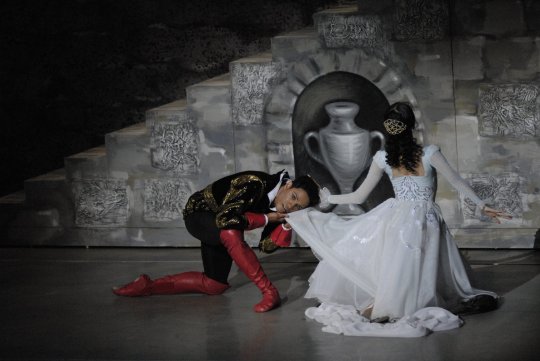




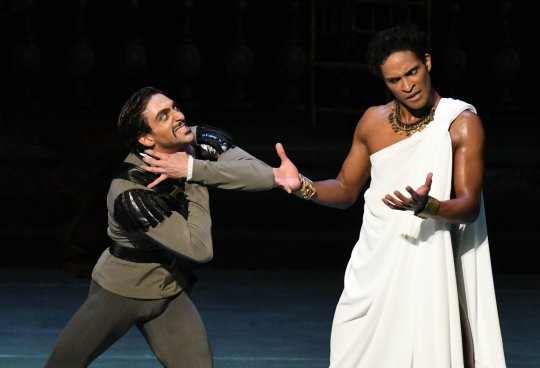
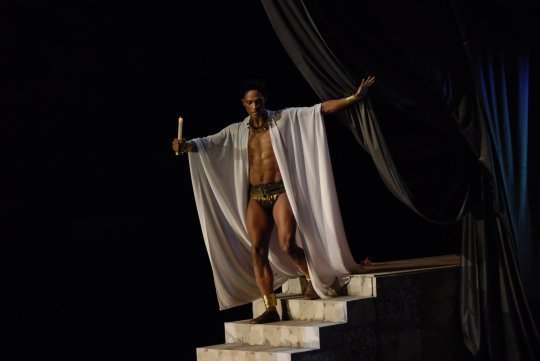


Alexi Matchavariani’s Othello, State Ballet of Georgia
(photos by Lado Vachnadze (1, 7) and Khatia Jijeishvili)
#othello#ballet#i'm obsessed with iago stepping on othello's chest i haven't stopped thinking about it since yesterday evening
18 notes
·
View notes
Text
Pros and Cons of Living in Atlanta, GA
Atlanta, GA, is a thriving metropolis with a lot to offer. However, even the best cities have their downsides. This blog post will explore the pros and cons of living in Atlanta, GA, to help you decide if this is the place for you. No matter your choice, you’re sure to have a good time!
Facts About Living in Atlanta, GA
Atlanta, GA, is the capital of Georgia and has an estimated population of 466,147* Atlanta is the largest city within the Atlanta metropolitan area and the Atlanta-Sandy Springs-Roswell metro area.
Atlanta, GA, is the 9th-largest city in the United States and is also serving the world.
Atlanta, GA, is approximately 450,000 years. According to the U.S. Census Bureau, it is the largest city in the U.S. state of Georgia.
Atlanta, GA’s weather is primarily humid subtropical, with mild winters and warm summers.
Atlanta, GA, is known as the “City in a Forest” for its dense tree canopy coverage.
Atlanta, GA, has three major professional sports teams: The Atlanta Braves in Major League Baseball, the Atlanta Hawks in National Basketball Association, and Atlanta United F.C. in Major League Soccer.
Atlanta, GA, hosted the 1996 Summer Olympics, which was considered the turning point in the worldwide acceptance of Atlanta as a major global city.
Atlanta, GA, is located in the center of a large area, also referred to as the “Interstate 285 Perimeter” or “I-285 Perimeter”.
Pros and Cons of Living In Atlanta, GA
Pros of living in Atlanta
There are many reasons why someone would want to live in Atlanta.
First, the climate is generally delightful. Summers are warm with relatively little rain.
Winters are typically mild, with cool nights and calm days.
Atlanta is the capital of the Southern United States. It’s a modern city with all of the amenities you would expect to find. In addition, there are many cultural opportunities, including theatre, opera, symphony, ballet, art, and history museums.
The Atlanta school system is one of the best in the United States. There are good public schools as well as private schools. The Atlanta University Center, comprising Morehouse, Spelman, and Clark Atlanta Colleges, offers an excellent education with excellent graduation rates.
Since many technology companies are in Atlanta, it has become a technology hub.
What are the cons of living in Atlanta, GA
The primary cons of living in Atlanta are:
The cost of living is very high compared to the rest of the U.S. (the average cost of living index is 77.3)
The state has a very high violent crime rate (7 660 violent crimes occur annually.)
Traffic in Atlanta is horrendous, and it’s considered one of America’s worst.
The traffic can be so bad that it causes people to consider relocating (or shopping for a new residence).
The average commute is a little over an hour and is two times longer than it was in the 70s.
Things to consider when deciding to live in Atlanta
Climate – The climate in Atlanta is humid subtropical, which means it is warm, but not too hot, in the summer. Atlanta averages 56 inches of rain annually, which is excellent if you like to vacation at the beach! The winters are mild, with an average of 36 inches of snow.
Jobs – The Atlanta area has tons of jobs. Over 50 Fortune 500 companies are headquartered in Atlanta (source: Fortune). There are also several colleges in Atlanta, including the Georgia Institute of Technology, Emory University, and Spelman College. These schools bring a lot of jobs to Atlanta.
People – Atlanta’s larger cities, such as Atlanta, Georgia, Stone Mountain, Tucker, and Decatur, have lots of people. More than 5.8 million people call perfect Atlanta home, according to the 2010 census.
Culture – Atlanta has tons of culture. The Atlanta Symphony Orchestra, the Atlanta Opera, and the Atlanta Ballet perform in Atlanta. There are also several excellent music venues, such as Atlantic Station and Buckhead Theater. Atlanta has many restaurants in famous districts such as Buckhead and Midtown if you need cultural cuisine.
FAQs about living in Atlanta, GA
What are the best neighborhoods to live in Atlanta, GA?
From personal experience, my favorite areas to live in Atlanta include the Buckhead, Downtown, Midtown, and Virginia Highland neighborhoods. The Buckhead neighborhood is especially appealing if you don’t like driving or shopping.
District Attorney, Buckhead, offers residents everything they could need in their area. The Buckhead YMCA, firehouses, grocery stores, restaurants, and retail shops are all within walking distance. In addition, the Buckhead Civic Association and The Buckhead Business Association ensure that these neighborhoods remain clean and safe. Midtown and South Dekalb Avenue have many hotel options, restaurants, retail shops, banks, government buildings, and government offices.
What are the schools like in Atlanta, GA?
Atlanta is a very diverse city, with many people from the outskirts and rural areas coming to live and work here. The public schools in Atlanta are very well regarded and provide equal educational opportunities for all students. The high schools are generally divided into five levels based on difficulty. Middle or junior high schools feed into the high schools (although some middle schools offer specific advanced programs). The schools have different grading systems, but students generally get a good education. The public school system in Atlanta also allows students to attend magnet schools, which provide specialized education for students interested in specific career fields.
What are the job opportunities like in Atlanta, GA?
Atlanta is a fast-growing city with a growing population base of nearly 4 million residents. As a result, jobs are abundant, particularly within Atlanta’s high-tech industries, such as microelectronics, telecommunications, and computing. In addition, careers with the city’s major institutions, such as Georgia Institute of Technology, Emory University, and the Centers for Disease Control and Prevention, also increase productivity throughout the city.
What is the cost of living expenses like in Atlanta, GA?
Housing in Atlanta, GA, is often the most expensive item on an Atlanta, GA budget, and the city’s cost of living is still less than half that of New York City. A reasonable Atlanta, GA, rent is $950 a month plus utilities for a single person. However, if you work in downtown Atlanta or Midtown, expect to spend upwards of $1,200 or more on rent. Groceries in Atlanta, GA, can cost between $100 to $300 a month, depending on whether you shop at Atlanta’s big-box supermarket chains. A utility allowance for Atlanta, GA, is around $100 to $125 a month. Meals in Atlanta, GA, can be as cheap as $15 for dinner and $12 for breakfast, and a cocktail can cost $10 to $20.
What is the weather condition in Atlanta, GA?
Atlanta, Georgia, is famous for its humid subtropical climate. Average daily high temperatures in June range from around 70°F to around 91°F, with temperatures slightly higher at night. Average daily high temperatures in July are everywhere from 72°F to around 90°F, with higher nighttime temperatures. Slightly lower daytime temperatures occur in August.
A slight chance of showers and thunderstorms is possible on most days throughout the year, but the heaviest rainfall usually occurs in July and August.
So, are you ready to make a move? If so, On Your Mark Movers is always ready to help you move your belongings safely. Call us at 833-627-5668, or you may visit our website here.
Source: https://onyourmarkmovers.net/pros-and-cons-of-living-in-atlanta-ga/
from On Your Mark Movers https://onyourmarkmoversusa.wordpress.com/2022/10/24/pros-and-cons-of-living-in-atlanta-ga-2/
3 notes
·
View notes
Note
it's definitely A statement to pick a theatre in a country that russia recently invaded. much more of one than going to, idk, bayeerische or something like that (i don't imagine parish would have struggled getting a job at basically any theatre he wanted).
I'm not sure how much of a statement it is because I am unsure about the permanence of this situation. The announcement made simply said that Parish would be performing Romeo on certain dates, not that he was joining the theatre. We'll have to wait and see. It also wasn't a super unexpected move, there are a lot of former MT dancers there right now, most notably choreographer/dancer Ilya Zhivoi who has created a ton of work on Parish. While Parish won't struggle to get a job, he likely needs to find a company that has space for both him and his wife. She's a fine dancer, but certainly not a 'star' that demands instant attention.
3 notes
·
View notes
Text
Events 2.20 (before 1940)
1339 – The Milanese army and the St. George's (San Giorgio) Mercenaries of Lodrisio Visconti clash in the Battle of Parabiago; Visconti is defeated.
1472 – Orkney and Shetland are pawned by Norway to Scotland in lieu of a dowry for Margaret of Denmark.
1521 – Juan Ponce de León sets out from Spain for Florida with about 200 prospective colonists.
1547 – Edward VI of England is crowned King of England at Westminster Abbey.
1685 – René-Robert Cavelier establishes Fort St. Louis at Matagorda Bay thus forming the basis for France's claim to Texas.
1792 – The Postal Service Act, establishing the United States Post Office Department, is signed by United States President George Washington.
1798 – Louis-Alexandre Berthier removes Pope Pius VI from power.
1813 – Manuel Belgrano defeats the royalist army of Pío de Tristán during the Battle of Salta.
1816 – Rossini's opera The Barber of Seville premieres at the Teatro Argentina in Rome.
1824 – William Buckland formally announces the name Megalosaurus, the first scientifically validly named non-avian dinosaur species.
1835 – The 1835 Concepción earthquake destroys Concepción, Chile.
1846 – Polish insurgents lead an uprising in Kraków to incite a fight for national independence.
1864 – American Civil War: Battle of Olustee: The largest battle fought in Florida during the war.
1865 – End of the Uruguayan War, with a peace agreement between President Tomás Villalba and rebel leader Venancio Flores, setting the scene for the destructive War of the Triple Alliance.
1872 – The Metropolitan Museum of Art opens in New York City.
1877 – Tchaikovsky's ballet Swan Lake receives its premiere at the Bolshoi Theatre in Moscow.
1901 – The legislature of Hawaii Territory convenes for the first time.
1905 – The U.S. Supreme Court upholds the constitutionality of Massachusetts's mandatory smallpox vaccination program in Jacobson v. Massachusetts.
1909 – Publication of the Futurist Manifesto in the French journal Le Figaro.
1913 – King O'Malley drives in the first survey peg to mark commencement of work on the construction of Canberra.
1920 – An earthquake kills between 114 and 130 in Georgia and heavily damages the town of Gori.
1931 – The U.S. Congress approves the construction of the San Francisco–Oakland Bay Bridge by the state of California.
1931 – An anarchist uprising in Encarnación, Paraguay briefly transforms the city into a revolutionary commune.
1933 – The U.S. Congress approves the Blaine Act to repeal federal Prohibition in the United States, sending the Twenty-first Amendment to the United States Constitution to state ratifying conventions for approval.
1933 – Adolf Hitler secretly meets with German industrialists to arrange for financing of the Nazi Party's upcoming election campaign.
1935 – Caroline Mikkelsen becomes the first woman to set foot in Antarctica.
1939 – Madison Square Garden Nazi rally: The largest ever pro-Nazi rally in United States history is convened in Madison Square Garden, New York City, with 20,000 members and sympathizers of the German American Bund present.
1 note
·
View note
Text
International Conferences and events in Russia
The geographical position of Russia occupies about the one seventh of the earth’s surface and it covers the northern part of Asia and the eastern part of Europe. That’s why it is geographically divided into two parts: Asian Russia and European Russia. It is the biggest country in the world and borders 14 countries named; China, Estonia, Azerbaijan, Belarus, Georgia, Finland, Kazakhstan, North Korea, Latvia, Lithuania, Mongolia, Poland, Norway and Ukraine. It also shares maritime borders with Sweden, Japan, Turkey and the United States. Its culture is traditionally quite collectivistic and inclusive, art and craft is an integral part of the culture. Russia is famous all over the world for its artists, including writers, composers, Classical music, painters and ballet dancers. The climate of Russia is humid continental in much of European Russia and subarctic in Siberia to tundra climate in the polar north. Orthodox Christmas, Reindeer Herder’s Festival, Maslenitsa Festival, Victory Day, Winter Festival is some popular festivals of Russia. Conferences in The Russia, Events in The Russia, all international conferences in The Russia, academic conferences in The Russia, international events and conferences in The Russia, Webinar, workshop, seminar and conferences in The Russia, major challenges in the country- conferences, international conferences in The Russia.
#academic conferences#global conferences#news#medical conferences in uk#conference#developers & startups#events#european conferences#engineering conferences in uk#history
0 notes
Text
Thursday, August 31, 2023
Idalia sweeps through Georgia after pelting Florida’s coast
(NYT) Hurricane Idalia made landfall Wednesday morning in Florida’s Big Bend, hitting the area with heavy rain and devastating winds before marching northeast into Georgia. The storm severed power to hundreds of thousands of homes and left behind life-threatening floods across wide swaths of the region. Idalia, which briefly reached Category 4 strength, is now a tropical storm with sustained 70-miles-per-hour winds. Still, forecasters warned that as it moves north, it could produce dangerous conditions in parts of Georgia and southern South Carolina.
Dry wells
(NYT) The water that lies beneath the earth’s surface—known as groundwater—has been a vital resource for thousands of years. Communities that are far away from lakes and rivers use groundwater to irrigate crops and provide drinking water. For most of human history, groundwater has existed in a convenient equilibrium. The pockets of water under the surface need years or decades to replenish as rainwater and other moisture seep into the earth. Fortunately, though, people have used groundwater slowly, allowing replenishment to happen. Now that equilibrium is at risk. Over the past 40 years, groundwater levels at most sites checked have declined. At 11 percent of the sites, levels last year fell to their lowest level on record. The U.S., in other words, is taking water out of the ground more quickly than nature is replenishing it. “There’s almost no way to convey how important it is,” Don Cline, the associate director for water resources at the United States Geological Survey, told The Times. Already, there are consequences. In parts of Kansas, the shortage of water has reduced the amount of corn that an average acre can produce. “We’ve built whole parts of the country and whole parts of the economy on groundwater, which is fine so long as you have groundwater,” journalist Chris Flavelle said. “I don’t think people realize quite how quickly we’re burning through it.”
The New Little Havana: Why Cuban Migrants Are Moving to Kentucky
(NYT) At the first beats of “La Vida es un Carnaval” on a recent morning, several octogenarians in a senior center abandoned their dominoes, coloring books and crossword puzzles, and showed off their salsa moves. Nearby, at a ballet studio, little girls and boys in T-shirts inscribed with, “Que Siga La Tradicion,” or “Keep the Tradition Alive,” clapped as they shuffled forward and back to a pulsating Afro-Cuban rhythm. “Uno, dos, tres,” said their instructor, Selen Wilson Guerra, as she warmed them up for class. This was not Havana, or even Little Havana in Miami. It was Louisville, a city best known for bourbon, the Kentucky Derby and Muhammad Ali. Now it is home to the fastest growing Cuban community in the United States. In a landlocked state with cold, gray winters, Louisville may seem an unlikely destination for refugees from a tropical island. But its plentiful jobs, relatively low cost of living and nonprofit agencies that support newcomers are powerful magnets. Not to mention word of mouth from longtime Cuban residents. According to independent estimates, at least 30,000 Cubans call Louisville’s Jefferson County home, with much of the influx having arrived in the last two years as conditions deteriorated in their country.
US embassy in Haiti urges citizens to leave country 'as soon as possible'
(Reuters) The U.S. Embassy in Haiti on Wednesday urged citizens in the Caribbean country to leave "as soon as possible" citing security and infrastructure challenges, as escalating violence has left thousands displaced and sent homicides soaring. "U.S. citizens in Haiti should depart Haiti as soon as possible via commercial or private transport," the embassy said in a statement, urging extreme caution. An escalating gang turf war in Haiti has caused a devastating humanitarian crisis that has displaced around 200,000 nationwide and left some 5.2 million people—nearly half of Haiti's population—in need of humanitarian aid, according to the United Nations.
Decades After Dictatorship, Chile Mounts Search for Hundreds Who Vanished
(NYT) Thirty-six years after Fernando Ortíz’s abduction and disappearance, his family finally received his remains: five bone fragments in a box. Mr. Ortíz, a 50-year-old professor, was kidnapped in 1976 during the dictatorship of Gen. Augusto Pinochet, rounded up with other communist leaders in Chile and sent to a torture center so secret that no one knew of its existence for three decades. He was one of 1,469 people who disappeared under Chile’s military rule from 1973 to 1990. Only 307 of them have been found and identified. Now, before the 50th anniversary of the coup that toppled one of Latin America’s most stable democracies and installed the 17-year dictatorship that imprisoned, tortured and killed thousands of its opponents, Chile plans a national search plan to track down the remaining disappeared. The measure marks the first time since the end of the Pinochet regime that the Chilean government has tried to find those who went missing—an effort that until now has largely fallen to the surviving family members, mainly women, who protested, went on hunger strikes and took their cases to court.
Air attack kills 2 in Kyiv while Russia accuses Ukraine of biggest drone attack of the war
(AP) Russian officials on Wednesday accused Ukraine of launching what appeared to be the biggest nighttime drone attack on Russian soil since the war began 18 months ago. The Kremlin’s forces also hit Kyiv during the night with what Ukrainian officials called a “massive, combined attack” that killed two people. Drones struck hit an airport in western Russia’s Pskov region near the border with Estonia and Latvia, damaging four Il-76 transport aircraft that can carry heavy machinery, Russian state news agency Tass reported, citing emergency officials. The airport strike, which was first reported minutes before midnight, started a massive fire, the regional governor and local media reported. Media reports said up to 20 drones may have targeted the airport, damaging at least four cargo planes.
Ukraine counts the cost of fighting back
(BBC) Ukraine treats its war casualty numbers as a state secret but recent reports have put the number of toops killed since Russia’s full-scale invasion as high as 70,000. In a brick mortuary near Donetsk, one of a number along the eastern front line, our correspondent Quentin Sommerville finds bodies “piled high”. At a desk, mortuary worker Margo faces the grim task of counting the dead. This was how she discovered her own partner had been killed. “The hardest is when you see a young guy who hasn’t even reached 20,” she says. “You cannot get used to this.” Outside, body bags are opened and wallets, phones and photos retrieved to identify the fallen. “This is difficult. Unpleasant. But we have to give the boys a proper send-off,” one officer says.
India lodges 'strong protest' over territory claims by China
(BBC) India says it has lodged a "strong protest" with China over a new map that lays claim to its territory. Indian media have reported that the map shows the north-eastern state of Arunachal Pradesh and the disputed Aksai Chin plateau as China's territory. India's protest comes days after Prime Minister Narendra Modi and Chinese President Xi Jinping spoke on the sidelines of the Brics summit in South Africa. An Indian official said afterwards that the two countries had agreed to "intensify efforts at expeditious disengagement and de-escalation" along the disputed border. The source of the tension between the neighbours is a disputed 3,440km (2,100 mile)-long de facto border along the Himalayas—called the Line of Actual Control—which is poorly demarcated. The presence of rivers, lakes and snowcaps means the line can shift in places. China says it considers the whole of Arunachal Pradesh its territory, calling it "South Tibet"—a claim India firmly rejects.
U.S. engages in frank talks amid warnings China has become ‘uninvestible’
(Washington Post) Commerce Secretary Gina Raimondo arrived in China this week with a challenging brief: Her department has implemented the United States’ tough export controls against China, and she had to stand firm on that position. At the same time, the former venture capitalist was seeking to advance a political thaw and improve American companies’ access to the lucrative Chinese market. For all the public smiles on both sides—including a surprisingly long meeting with China’s premier—one word hung over Raimondo’s four-day trip: “Uninvestible.” “Increasingly I hear from American business that China is uninvestible because it’s become too risky,” she said. “So businesses look for other opportunities; they look for other countries; they look for other places to go.” Three years of covid-related lockdowns snarled supply chains. Then came an unpredictable mix of raids on American businesses and opaque penalties—including the increasing use of exit bans against foreign business executives. Taken together, it has made foreign firms—not just U.S. ones—wary of continuing operations in China. In China’s words, it’s open for business. In actions, not so much. According to Naomi Wilson, vice president of policy, Asia and global trade at the Information Technology Industry Council, “Even among Chinese companies, there have been efforts to relocate outside of China.”
Israel Isn’t Earning Any Allies
(BBC/Guardian) On Monday, Libyan Prime Minister Abdul Hamid Dbeibah suspended Najla Mangoush, his own foreign minister, for meeting with Israeli Foreign Minister Eli Cohen. Libya, like many other Arab states, does not recognize Israel diplomatically and is a staunch supporter of the Palestinian cause. Reports of the meeting were met with protests in the Libyan capital of Tripoli, and the Speaker’s Office in parliament accused Mangoush of grand treason. As news of the meeting between Israel and Libya broke, Syrian state media claimed that Israel’s military launched airstrikes on Aleppo International Airport. The airstrikes were reportedly aimed at the airport’s only operational runway and grounded all flights. This year alone, Israeli airstrikes on Syria’s airports have killed over a dozen people, and have shut down its two international airports multiple times. According to the United Nations Office for the Coordination of Humanitarian Affairs (OCHA), Israeli settler violence is rising to new highs. So far this year, OCHA has registered over 700 incidents of settler violence leading to Palestinian casualties, damage to property, or both. Israel has authorized 15 new settler outposts this year, and IDF forces have been known to stand by and watch as settlers attack the Palestinians. The U.N. and the rest of the international community don’t recognize settlements as legal.
Africa: A third of all people
(Foreign Policy) Half of the global population growth from 2022 to 2050 will occur in sub-Saharan Africa. The region’s population is currently growing three times faster than the rest of the world, and by the end of the century, it will be home to a third of all people in the world, compared to only 14 percent in 2019. This means that the burden of rapid population growth will fall on some of the poorest countries in the world, with nearly half of the region having a gross national income per capita below $1,135, and in places that are among the most vulnerable to climate change.
Gabon Military Officers Say They Are Seizing Power
(NYT) A group of senior military officers appeared on television in the oil-rich Central African nation of Gabon early Wednesday and announced they were seizing power, hours after the incumbent president, Ali Bongo Ondimba, was declared to have won a third term in office. The officers, who claimed to represent the major arms of the security forces, said they were canceling the results of the recent election, suspending the government and closing the country’s borders until further notice. Bursts of gunfire could be heard in the capital, Libreville, shortly after the broadcast ended, Reuters reported. The Bongos have ruled Gabon, a country of 2.3 million people on Africa’s Atlantic coast, for over half a century. Mr. Bongo, 64, was about to begin his third term since becoming president in 2009. He took over from his father, Omar Bongo, who had been in power since 1967.
0 notes


